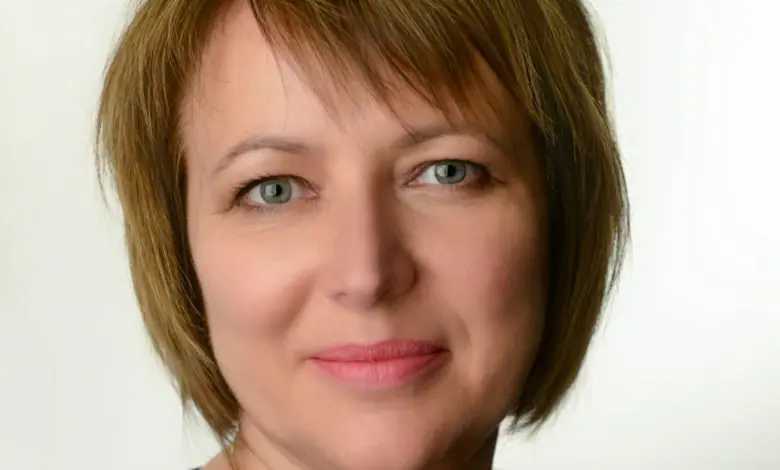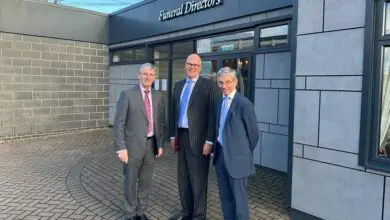Has planning ever been more important?
Golden Charter CEO, Suzanne Grahame, explains that by looking at current trends in the US we may be able to anticipate and better prepare for the evolution of the industry here in the UK

Picture a future where cremation is the norm. Where limousines, coffins and burials are the exception to the rule. Emerging methods like “aquamation” are no longer foreign.
In the United States, that future is now. US cremation statistics reveal that just 3.6% of Americans chose cremation in 1960. Fast forward to 2025, and the National Funeral Directors Association (NFDA) is expecting to see that number hit a staggering 63.3%, marking a sixty-percentage point increase
A main driver for this surge is cost. While much depends on how simple or extravagant any funeral may be, cremation tends to keep costs lower.
Families are also choosing cremation due to its reduced environmental impact. With burial often requiring the use of toxic embalming fluids, challenges around land scarcity and caskets’ slow decomposition rates, cremation is being chosen by both the cost-conscious, and the environmentally conscious consumer.
While cremation is touted as being better for the environment, we must remember that it is an energy-intensive process that emits some 600 million+ lbs of C02 per year.
This is where even more alternatives come into play.
Legal in just 20 American States, “aquamation” was widely popularised by Desmond Tutu’s funeral this year. The water-based, low-cost option is expected to become increasingly popular thanks to its significantly lower environmental impact.
The message coming from the US is clear: traditional funerals are losing ground to simpler, more cost and environmentally conscious options. As a nation, America often serves as a litmus test for the UK’s funeral sector. While “green” burials are gaining traction in the UK, with an increase in demand for direct cremation, nearly two thirds of Americans are already interested in green options.
Awareness of American trends is key, and we must acknowledge that these developments are coming to the UK, and respond in anticipation.
Some good news is that funeral directors within the United States are continuing to thrive. Indeed, a staggering 89.2% of funeral homes remain family or individually owned, despite more traditional profit drivers becoming less popular.
American funeral directors adapting to a changing market through enabling ultra-personalisation. More and more, families are seeking ways to show the personality of the person they are remembering.
Indeed, this trend is not unique to America. When it comes to planning ahead, our own research shows over 50% of consumers consistently expect that funeral plans will be fully bespoke to their wishes, with only one in five customers interested in a prepackaged plan.
Funeral directors have an important role to play in making personalisation happen. Working with families to add unique touches requires the provision of different options, and the drive toward adding personality to funerals creates new opportunities to support customer needs.
America’s funeral directors are diversifying. A skill not often associated with the role of a funeral director – after all, much of the service funeral directors provide to communities is clearcut, and the support provided should not change.
But Walker Posey, independent funeral director and spokesperson for the NAFD USA, pointed out how funeral directors are taking on a wider set of responsibilities.
According to Posey, some are providing catering offerings and building kitchens, acknowledging that while the traditional funeral may not be as popular, families are still looking to gather to remember their loved one. Others are building event centres and taking active roles in leading events, acting as emcees for families in non-religious ceremonies.
With generational shifts come differing values. Younger groups have been identified as drivers for celebratory events within the US, bringing rewards to funeral directors who choose to diversify.
Pre-planning is also a clear growth opportunity within the sector. Pre-need has become the fastest growing industry segment in the USA, even while anticipated demand for at-need services sits at record levels.
We commissioned our own research to understand consumer attitudes and intentions towards funeral planning in the UK, and the results are aligning with US trends. Since 2019, we have seen an increase in consideration of obtaining a funeral plan.
Now that the sector has become regulated by the Financial Conduct Authority (FCA), funeral directors could benefit from placing stronger emphasis on their pre-need propositions.
With our research showing a third of potential customers have waited to enquire about a funeral plan because of the impending regulation. For those funeral directors approved to represent an FCA authorised plan provider, there is opportunity to capture a market that has greater confidence and trust in the product.
UK Funeral directors can benefit from promoting their pre-need proposition to families and connecting with local customers, both in person and online. Even if the chosen plan is essentially a direct cremation, securing the future funeral becomes a starting point for having a discussion around ultra-personalisation.
Our research revealed that personalisation was of interest to one in five consumers who would not otherwise consider the service. Anecdotally, we are seeing a consumer who would like a simple funeral, but with more than what a defined direct cremation provides.
Even though the role of the funeral director in the United States has evolved, it is important to note that certain parts remain the same, with funeral director businesses still predominantly family-run or individually owned. They act as a linchpin for their communities and are called upon to provide significant support during one of life’s most challenging times.
And while these funeral directors are exploring the unconventional when it comes to specific services, the importance of local, independent funeral directors remains significant.
If we use customers within the US as an indicator of the direction of travel for the sector within the UK, independents stand to gain great advantage from foresight. It is now critical to plan ahead.
Suzanne Grahame is CEO of Golden Charter, a funeral plan provider authorised and regulated by the Financial Conduct Authority







